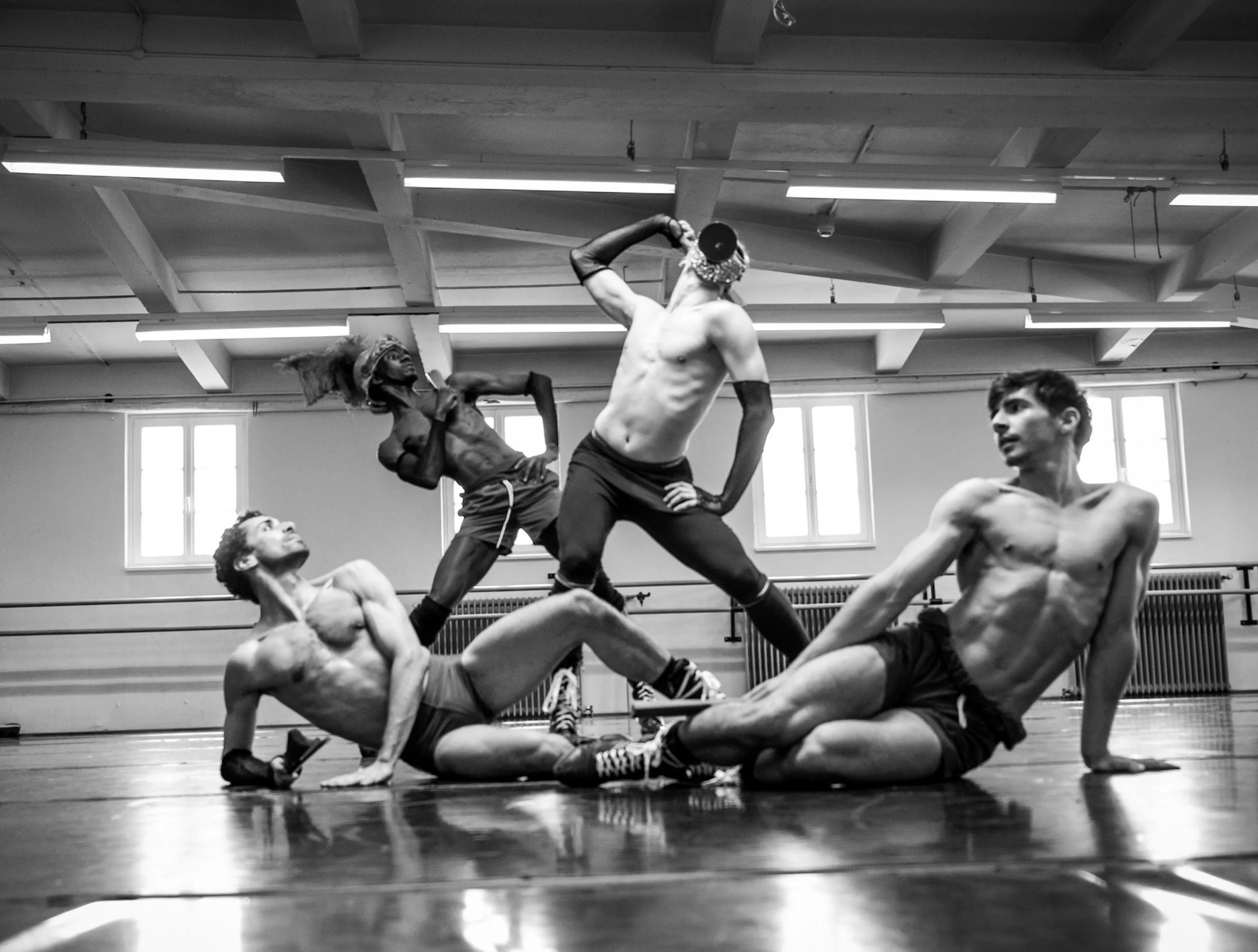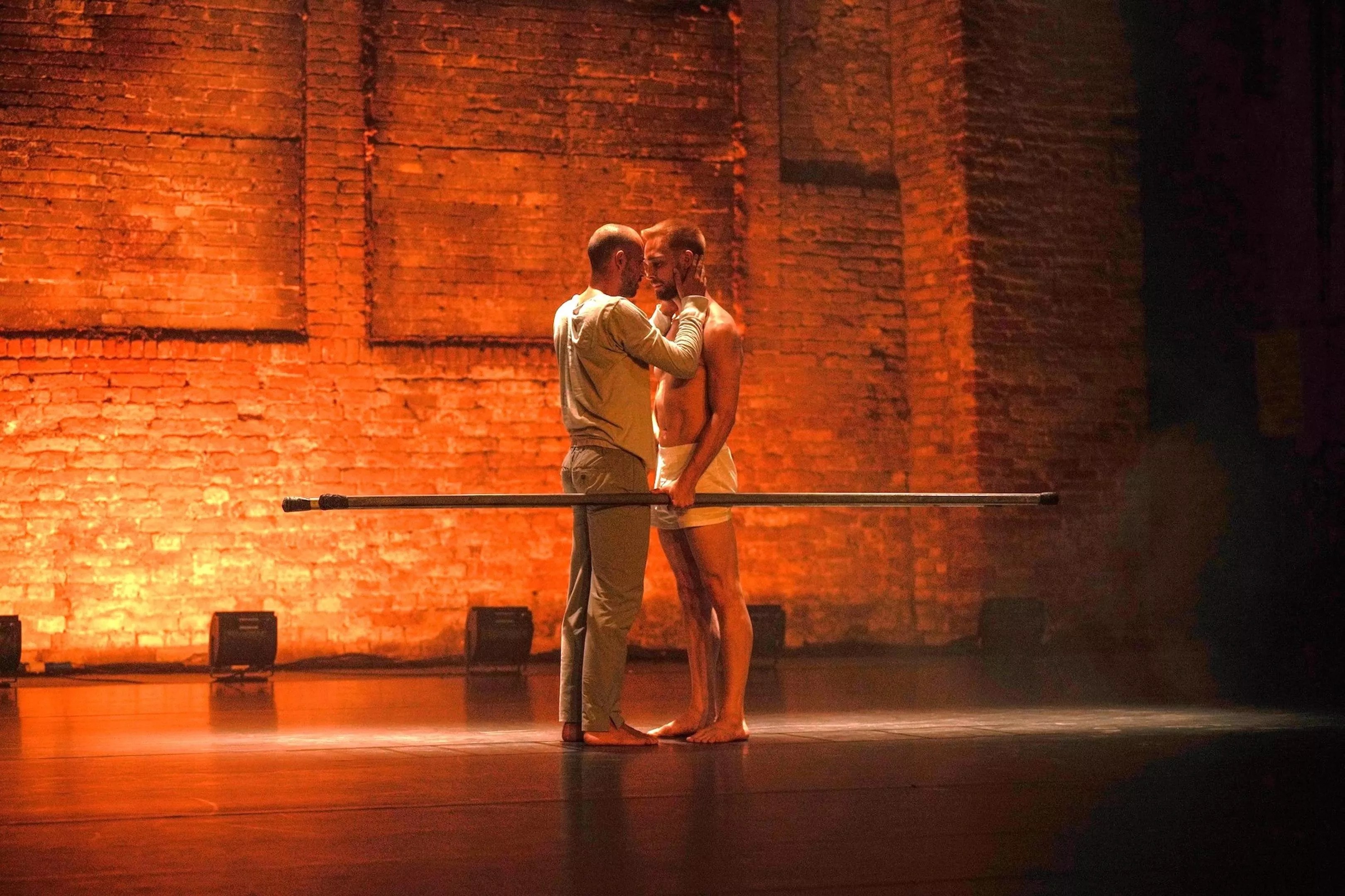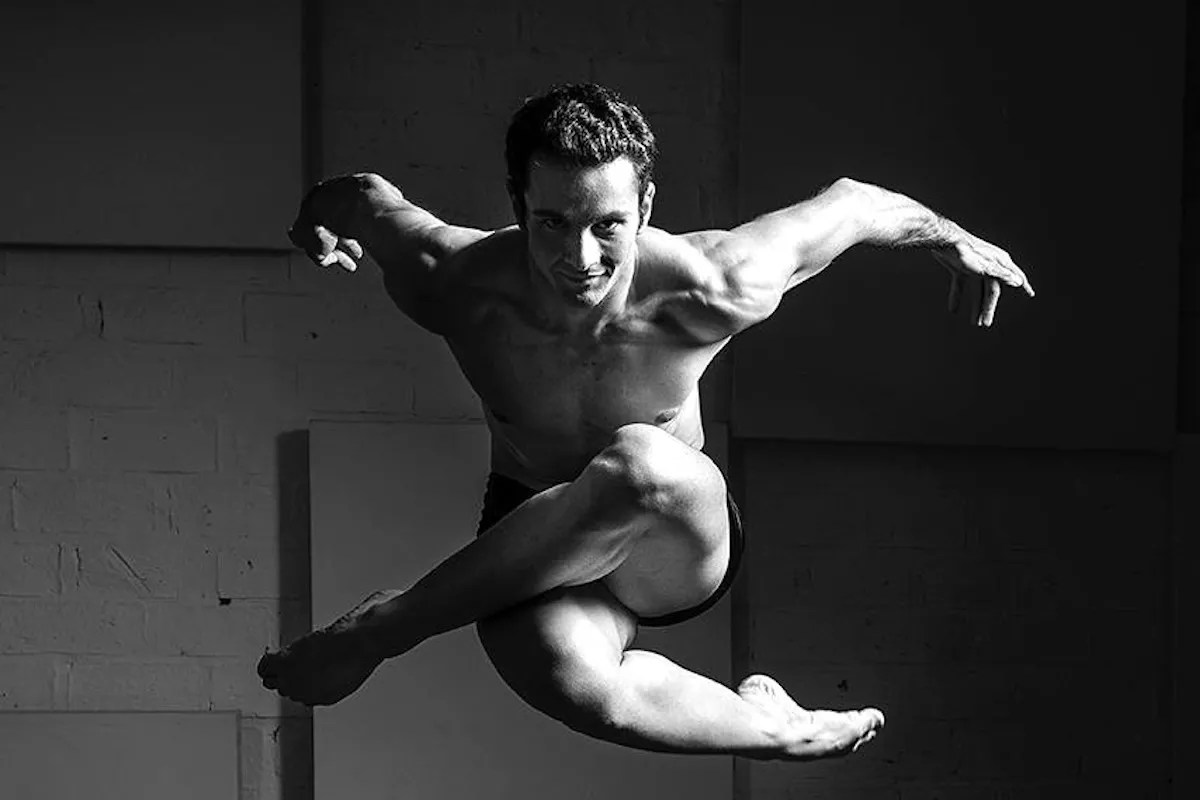
Photo by Varvara Kandaurova

Audio By Carbonatix
From risky beginnings at the height of the pandemic, South Florida’s Men Who Dance festival – now in its fourth year – not only survives but thrives despite recent political headwinds in Florida targeting gender-blurring performances.
The festival is an ongoing project of Rafi Maldonado-Lopez’s Inter-American Choreographic Institute, based in Miami Beach, which he launched in 2014 to support new dance groups and develop dance works that reflect the stories of the Americas.
A classically trained dancer, the artistic director of Men Who Dance recalls how, in the balletic world, he received the message early on that he would play second fiddle to his female partners.
“The girl is the picture, and you’re the frame,” Maldonado-Lopez recalls a teacher telling him. “You support the picture. That’s your job.”
A friend later reminded him that there are frames worth a lot more than the paintings they enclose.
“Nine thousand years ago, the first depictions of people in caves were of people dancing,” says Maldonado-Lopez. “Before written language, we created deities, and we danced in order to be kinetically connected to nature and to creatures – how did that get lost?”
This year’s Men Who Dance lineup includes Miami City Ballet, Cuban Classical Ballet, Syncopate Collective, guest artist Pontus Lidberg, Arts Ballet Theatre of Florida, A.V. Dance, National Dance Company of Mexico, RTW Dance, Evolve, Dance Now! Miami, as well as Florida Grand Opera and the Sanctuary of the Arts Ensemble. New Canon Chamber Collective, a newly formed local orchestra whose mission, in part, is to nurture and support Black classical musicians and composers from North Lauderdale, is joining Men Who Dance for the second year.
Performances are Saturday, November 25, and Sunday, November 26, at the Broward Center for the Performing Arts in Fort Lauderdale.
While he’d like to have the festival in Miami-Dade County, where many of the companies are based, Maldonado-Lopez says pragmatically that there are factors that put Men Who Dance in Broward County.
“The Broward Center has been amazing. The Arsht asks $30,000 to get in the door, which is prohibitive for our budget. Miami-Dade County Auditorium is closing for two years for renovations. There is just not a space like the Amaturo Theater in Miami-Dade County,” explains the artistic director, referring to the Broward Center’s 584-seat theater. Its main venue, the Au-Rene Theater, has more than 2,600 seats.

Guest dancer, choreographer, and filmmaker Pontus Lidberg (left), performing with Italian dancer Damiano Artale, will be featured in the fourth-annual Men Who Dance at the Broward Center for the Performing Arts on Saturday, November 25, and Sunday, November 26.
Photo by Andrea Avezzù
Regardless of the stage it is presented on, recent developments in Florida’s political landscape have complicated the public performance of a dance festival that blurs lines around gender.
“Randolph is our gender-bending, politically charged work,” says Maldonado-Lopez, referring to dancer and choreographer Randolph Ward, whose performances frequently incorporate drag.
“I was concerned about having drag queens on stage,” admits Maldonado-Lopez, alluding to Florida’s Protection of Children Act, signed by Gov. Ron DeSantis. The 2023 law makes it a misdemeanor to knowingly admit a child to a sexually explicit, adult live performance that would be obscene for the “age of the child present.” (At this time, as the law plays out in courts with First Amendment rights at the center of the conversation, officials cannot enforce the law before its legal challenge is resolved.)
“Randolph is doing this piece called ‘A Vogue Extravaganza’ where the dancers are in jeans and white shirts and heels, so those restrictions don’t apply,” reasons Maldonado-Lopez.
Fresh off afternoon interviews with Emmy Award-winning director Abbas Motlagh’s documentary crew for a film about the festival, Ward acknowledges the current political climate but insists it does not force him to alter his vision.
“For me, artistically, nothing has changed, but there is a law now that you cannot do drag in public,” says Ward. “It hasn’t changed my vision, but it can change the logistics of the show. It’s important that everyone knows in advance what they are going to see.”
Ward’s “A Vogue Extravaganza” premiered in Saarbrücken, Germany, at the Saarländisches Staatstheater in 2017 as a celebratory tribute to the underground ballroom and vogue dance scenes that became popular in the 1980s and ’90s among African-American and Latin gay youth.
“They were coming out and being rejected by their blood families who had kicked them out, so they lived together in ‘houses’ with house mothers and house fathers,” explains Ward. “Their community allowed them to practice their art and take the confidence, determination, and self-esteem they acquired there out into the world.”
Ballroom vogueing is a dance form notable for its high energy, intense physicality, and competitiveness.

Abel Rivarola representing Paraguay in the 2021 edition of Men Who Dance
Photo by Alvar Fernandez
Ward’s three-part work aims to capture that.
“In the first part, the men walk out and establish their character for the piece,” explains Ward. “We establish that this is not your grandmother’s piece; we are going to be in your face. These are men in heels, and, yes, they have femininity. It’s a confrontation.”
As a deeply political filmmaker, Motlagh appreciates how Florida’s current politics have presented challenges to the South Florida arts community.
“Men Who Dance is causing positive turbulence in the current political climate, and that’s something I love to use in my films,” he says, adding he is also interested in the festival’s ongoing commitment to supporting new talent.
“People are so familiar with the famous stars,” says Motlagh, “but these young performers are real artists that are unknown. Nobody knows them…but they are making beautiful work speaking through and learning the language of dance.”
His interest in creating a film about Men Who Dance gave him the opportunity to focus on something new, says the documentarian who usually takes on topics about the effects and absurdities of war and, like his 2008 film “Across the River,” carries an anti-war message.
“Dance for me was always something very, very special,” says Motlagh. “This is an opportunity for people to look at dance and dancers as art. Not as a question of gender identity – male, female, gay, straight – but as vehicles to a pure art form.”
Maldonado-Lopez acknowledges the gains that his festival has made against stereotypes surrounding men and dance but is quick to point out the reality for many South Florida dancers.
“I am proud that we are now the largest all-male dance festival, and I am so proud that 80 percent to 85 percent of the dancers and companies are from here,” said Maldonado-Lopez. “We are trying to elevate the culture of South Florida, but I am still picking up dancers from Starbucks, Walmart, and Best Buy, [and that tells me] we don’t have a sustainable industry here yet. We have pockets.”
– Sean Erwin, ArtburstMiami.com
Men Who Dance. 8 p.m. Saturday, November 25, and 3 p.m. Sunday, November 26, at the Broward Center for the Performing Arts, 201 SW Fifth Ave., Fort Lauderdale; 954-462-0222; browardcenter.org. Tickets cost $25 to $45 via ticketmaster.com.